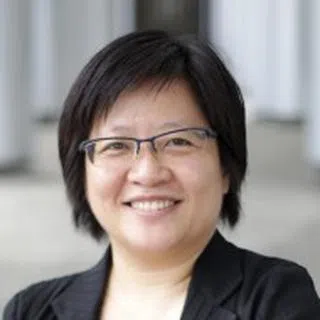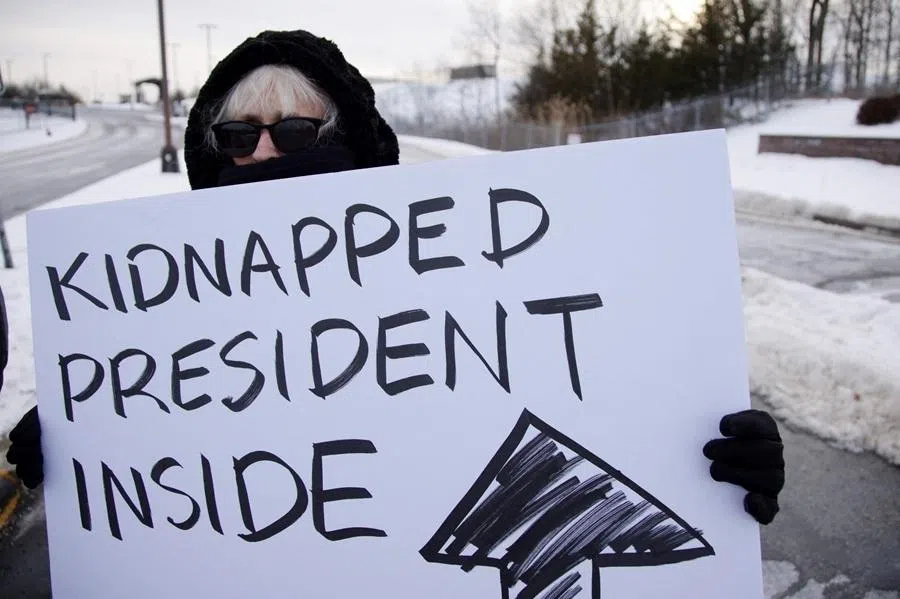China's entry into the Middle East: Beginning of China-US full-scale confrontation
A clear theme throughout China's Two Sessions this year has been its resistance to the US's attempts at suppression and containment. Lianhe Zaobao associate editor Han Yong Hong notes that while China's rhetoric against the US has gotten stronger, it has actively shown itself to be a major global player, even in the Middle East.
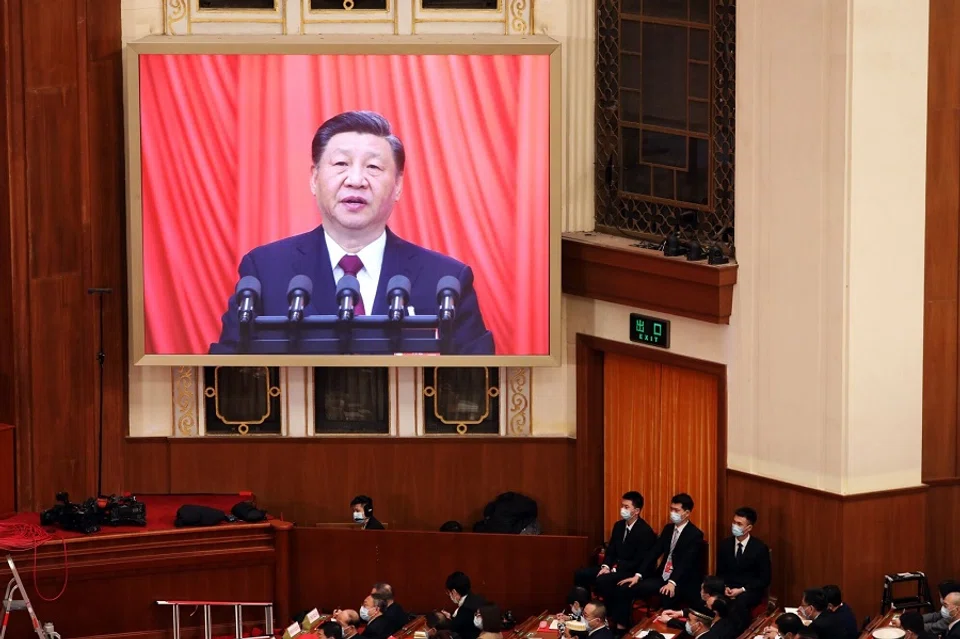
The Chinese government's most important annual political conference, the Two Sessions (两会, Lianghui, annual sessions of the National People's Congress (NPC) and the Chinese People's Political Consultative Conference (CPPCC)), mostly focuses on domestic issues. The Two Sessions this year should revolve around personnel changes and economic revitalisation, especially after the major reshuffling of the Chinese Communist Party (CCP) leadership last year and the country's emergence from the pandemic. However, the issue of China-US relations, currently dominating the international political arena, is not a topic one can avoid.
How will CCP General Secretary and Chinese President Xi Jinping, now entering his third term, handle the country's relationship with the US? Will the relationship of two great powers that have shaped this century's history be derailed?
China the peacemaker
As the Two Sessions draw to an end, China's message is clear: just as the US has asserted that China poses "the most serious long-term challenge to the international order", China would not refrain from criticising the US for "bringing unprecedentedly severe challenges to our country's development".
As China-US relations continue to deteriorate, China is no longer hopeful that relations can improve, and is making numerous strategic, diplomatic and technological preparations based on the growing pessimism about China-US relations. This is evident in this year's Two Sessions, which sent out strong messages of fighting against the US's encirclement and suppression.
Xi's remarks were shocking as Chinese leaders previously have never criticised a country so specifically during the Two Sessions.
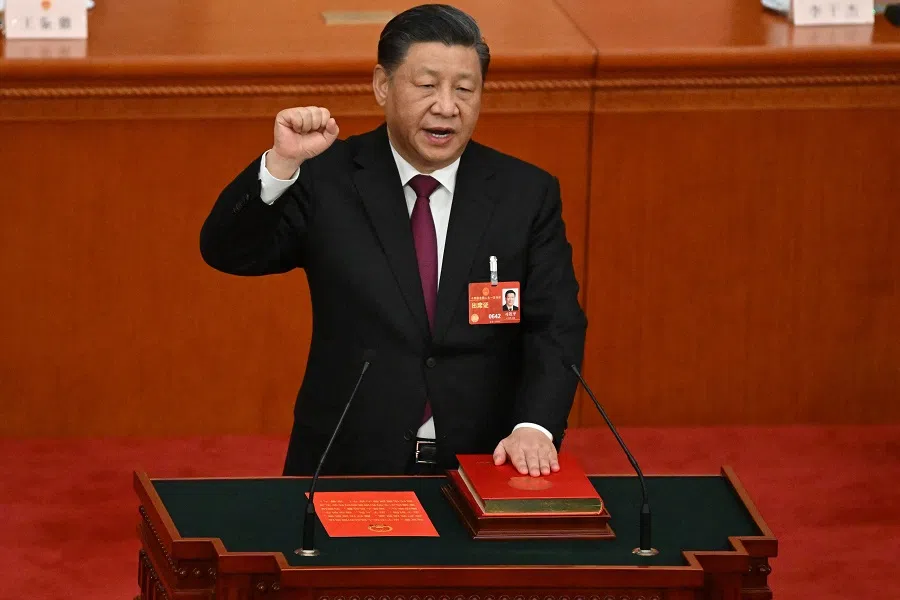
At a session of the CPPCC on 6 March, Xi made strong criticisms of the US in a rare display. In calling out the US, he said, "Western countries - led by the US - have implemented all-round containment, encirclement and suppression against us, bringing unprecedentedly severe challenges to our country's development."
Xi's remarks were shocking as Chinese leaders previously have never criticised a country so specifically during the Two Sessions.
Four days later, an even more pivotal development occurred: following China's mediation, archrivals Saudi Arabia and Iran agreed to re-establish diplomatic ties, creating a major breakthrough in the geopolitics of the Middle East.
... Wang Yi stood prominently in the centre, illustrating China's role as a "peacemaker" in an attempt to portray itself as different from the US.
After five days of high-level talks in Beijing, representatives from Saudi Arabia and Iran signed an agreement on 10 March to resume diplomatic relations and reopen embassies within two months. In a group photo of the handshake between both governments, CCP Politburo member and former Chinese Foreign Minister Wang Yi stood prominently in the centre, illustrating China's role as a "peacemaker" in an attempt to portray itself as different from the US.
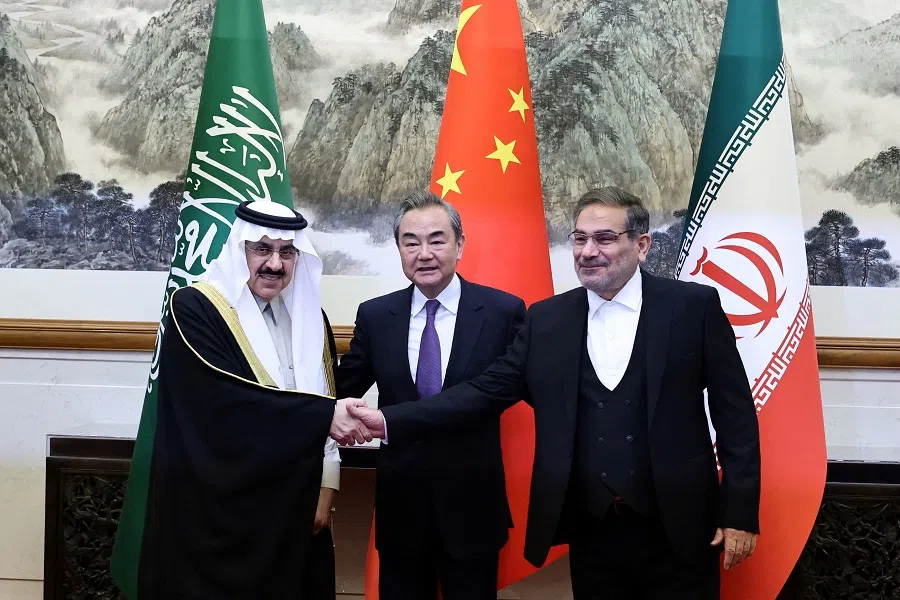
It was mentioned at the start of the joint trilateral statement between the three countries that the talks were held at the initiative and with the support of Xi, who was also sworn in for a historic third term as China's president at the Great Hall of the People in Beijing on 10 March.
Countering US pressure and actions
The rivalry between Saudi Arabia and Iran has been described as a "Middle Eastern Cold War", with both sides on the brink of military conflict, confronting each other through their respective proxy forces in Lebanon, Syria, Iraq and Yemen. Viewed positively by regional countries, the resumption of diplomatic relations between Saudi Arabia and Iran after their seven-year rift is set to de-escalate regional tensions and risks. But for the US, this implies multiple blows to international geopolitical competition.
Al Jazeera ran an article saying this shows that the US's role in the Middle East is weakening. Besides having a major impact on Middle East geopolitics, China can now also play a role in issues far beyond its sphere of influence.
In fact, the reconciliation between Saudi Arabia and Iran is a strategic trend that gradually built up over the course of the US withdrawal from the Middle East. US President Joe Biden had previously said, "We will not walk away and leave a vacuum to be filled by China, Russia or Iran." But while the US is doing all it can to contain China and Russia, it will inevitably come up short in its global strategy. Indeed, Biden met with cold treatment during his visit to Saudi Arabia in July last year, in stark contrast with the high level of treatment that Xi received when he visited in December of the same year.
... exerting an influence in the Middle East will help it counter pressure from the US's Indo-Pacific strategy and the use of Taiwan as a pawn.
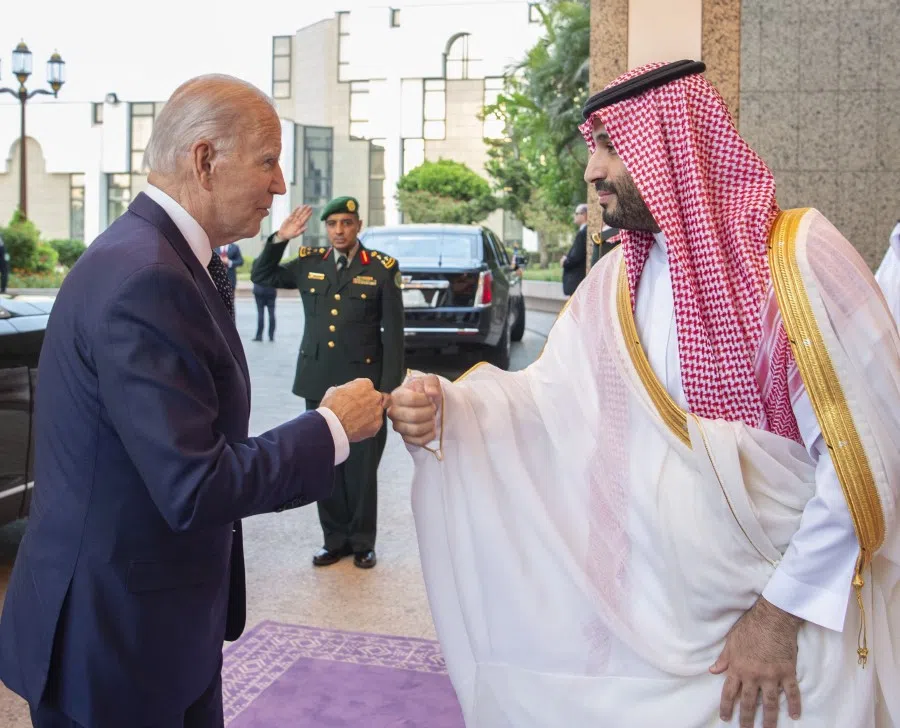
From China's perspective, while it claims to object to geopolitical competition in the Middle East and stresses that it has no stake in the Middle East and no intention to fill any vacuum, exerting an influence in the Middle East will help it counter pressure from the US's Indo-Pacific strategy and the use of Taiwan as a pawn. China had begun its preparatory work in the Middle East and South Pacific years earlier.
In its financial budget announced at the Two Sessions, the budget for diplomatic expenditure was boosted by 12.2%, indicating that China will be more aggressive in foreign relations as it makes up for lost time during the pandemic. Furthermore, it wants to expand its influence, especially in making friends outside of US allies to counter US containment.
Beginning of full-scale confrontation
Another highlight of the Two Sessions is the reforms to the CCP and government bodies. The State Council stated, "Facing the severe situation of international scientific and technological competition as well as external containment and suppression, it is necessary to... accelerate the realisation of high-level scientific and technological self-reliance and self-improvement."
It added that it will build a new national framework to strengthen the CCP's centralised leadership of technological efforts, and set up a central committee to oversee the science and technology sector. These duties would be taken on by the restructured science and technology ministry.
In key areas of technology, finance and security, China is likely to adopt the above approach to gather the strength of the nation to resist the US's suppression.
China has made strategic preparations for this while pushing for a "China-style modernisation". If such a governance approach works, it will have an even deeper influence on international relations, and impact China-US relations.
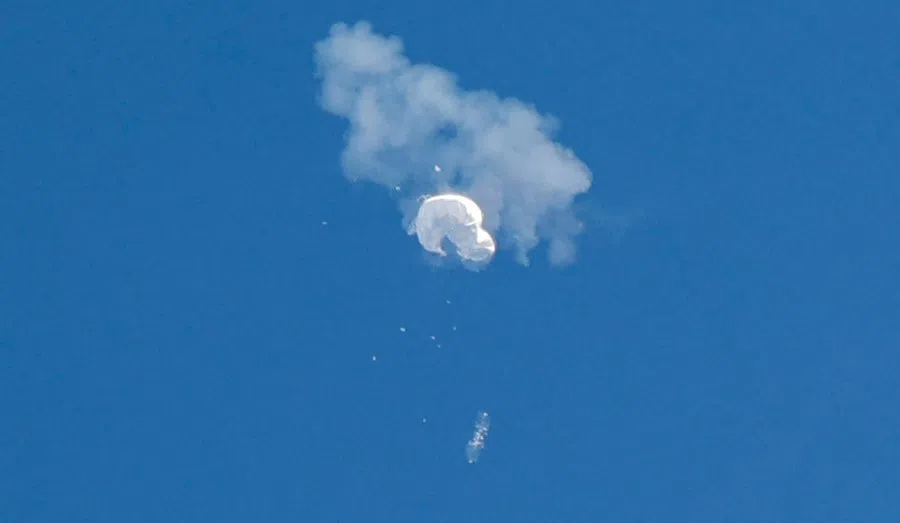
To some extent, the current state of China-US relations has been a result of the "balloon saga" in early February, but even more so the constant stream of US laws to contain China, the US tightening of export restrictions on Chinese technology, and the US's interference in the Taiwan Strait over the past few years. China has made strategic preparations for this while pushing for a "China-style modernisation". If such a governance approach works, it will have an even deeper influence on international relations, and impact China-US relations.
At a Two Sessions press conference on 7 March, Qin Gang, China's new foreign minister, said that the US wants China not to respond in words or action when slandered or attacked, which is "impossible" - in fact, that is a declaration that it will respond in kind, and wants the US to take responsibility for the possible derailment of China-US relations.
China and the US are entering an era of full-scale geopolitical, diplomatic, military and technological confrontation, and China's entry into the Middle East, along with the messages conveyed at this year's Two Sessions, is just the beginning.
This article was first published in Lianhe Zaobao as "中国宣示进入 对美"打会还手骂会还口"时代".
